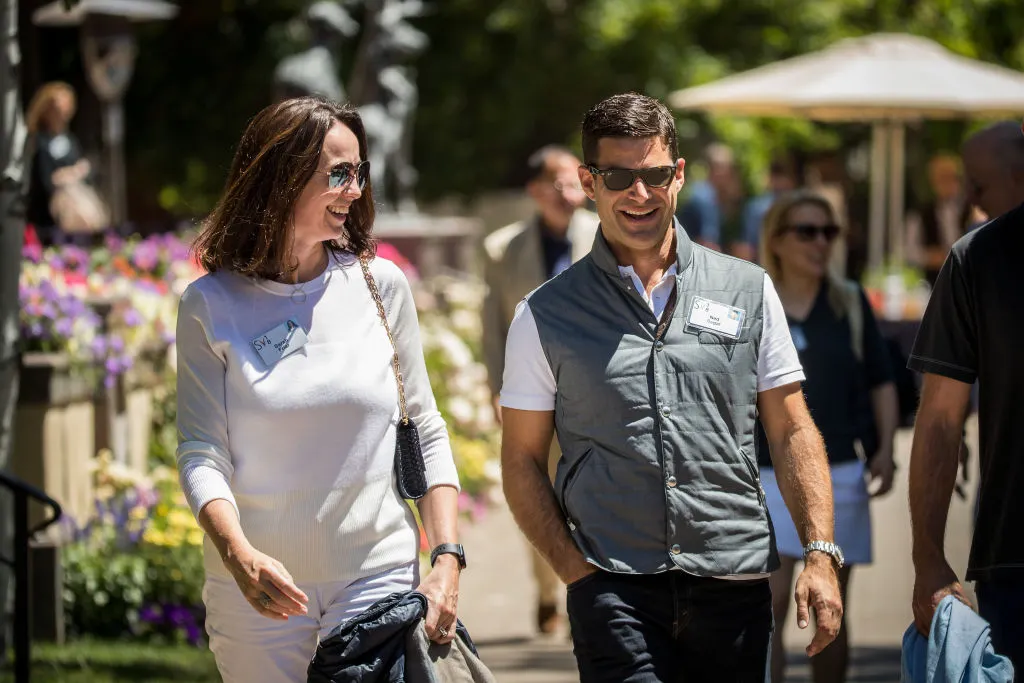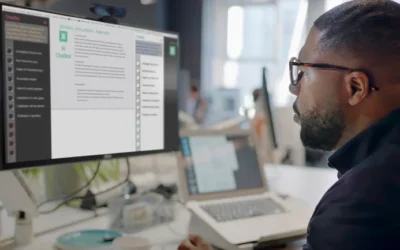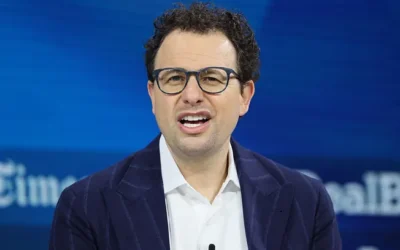In her latest and one of the most extensive interviews since taking her position as CFO, OpenAI’s Sarah Friar spoke to Bloomberg at the World Economic Forum in Davos, Switzerland, on Jan. 21. While her comments on Elon Musk’s “lawfare” tactics were widely noted, the former Square CFO and Nextdoor CEO also spoke candidly about some of the challenges she and her team are currently facing.
She discussed her plans to address these challenges and help move the company forward, including advancing reasoning models and their real-world applications, exploring the restructuring process, achieving profitability and providing insight on how to approach the IPO process as a CFO.
Open AI’s business model and Musk’s criticisms
Friar’s interview took place just hours apart from OpenAI CEO Sam Altman’s appearance in Washington, D.C., with Oracle founder and chief technology officer Larry Ellison to announce SoftBank’s newly bumped $500 billion, four-year investment in U.S. AI development. Musk accused this investment of being illegitimate on X, saying SoftBank has only about $10 billion committed to such investments.
Musk has also been highly critical of OpenAI’s restructuring, a move Friar said is “not a done deal.” She shared her thoughts on the benefits of shifting from a nonprofit to a public benefit corporation (PBC) and emphasized these conversations have been ongoing since Musk’s involvement. However, she reiterated that the efforts aren’t distracting the leadership team or board from fulfilling their duties as a nonprofit.

“The PBC [model] does allow us to balance both being mission-focused as well as being shareholder-focused and economically focused,” Friar said. “It’s not the end-all-be-all, but pricing, accessing capital and attracting great people are three tenets that I look at when thinking about why we might want to look more like a traditional company.”
Despite the uncertainty around where the future of AI development will take place, Friar said she was confident in her company’s ability to sustain growth based on its recent performance. “Luckily, we also have a business model that supports [rapid growth],” she said. “I already mentioned ChatGPT for consumers, which has over 300 million users today [and] it’s a workhorse for revenue, revenue growth, and ultimately profitability.”
When asked about criticism of the move, particularly from Musk, Friar framed his critiques as “lawfare.”
“We think he’s a strong competitor, but we hope that he won’t keep resorting to using lawfare to compete,” she said. “Even in his own words, AI and building AI is a very capital-intensive business, and I think even he recognized very early on that it would require us to be much more than just a nonprofit.”
Advancing reasoning models and their use cases
The advancement of reasoning models, achieved at some point during 2024, has been a catalyst for user growth, Friar said. This user growth enabled the successful launch of their paid version, GPT-0.1, and positioned the company for a future launch of GPT-0.3. She said the company is “upping the pace” of their generative AI’s reasoning capabilities.
“We just went from 0.1 to the preview of [the second version], GPT-0.3, and if you think about the length of time from ChatGPT-3 to ChatGPT-4, which took about two years, that pace of innovation is really accelerating,” she said.
From a CFO’s perspective, she described the experience as “exhilarating, inspiring, exhausting and done with a sense of privilege.” She said OpenAI’s leadership team is keenly aware of the responsibility they bear, especially regarding safety and the real-world impact of their tools.
Friar highlighted reasoning AI’s use cases in pharmaceuticals and investment banking as areas where the company has already seen a return on investment. “In pharma, for example, [it’s used in] deep research into new molecules that help medical professionals think about drugs and drug discovery,” she said.
She also shared her thoughts on how reasoning models can help in personal life, particularly for professionals balancing demanding roles. “I am a working mom, and [sometimes] I’m like, ‘Oh no, it’s 5 o’clock, there has to be something on the table to feed my children right now,’” she said. “My husband is really useful, but not always the most useful, so what am I going to do? This is a moment where an agent can perhaps figure out what can be delivered [for dinner].”
Friar explained that a reasoning model could handle the specifics, such as budget, preferences and dietary needs. “I don’t want to have to be specific; I want to say, ‘Please get me something healthy. We had pizza last night, so not Italian. Let’s not do too many carbs again,’” she said.
She noted many attendees at the Davos conference shared personal rather than professional use cases for ChatGPT. “I think you’re going to start to see this dawn of agents in our workforce,” she said. “It may be in areas like software development and deep scientific research.”
Guidance on IPOs
Having taken two companies public before joining OpenAI, Friar offered advice to CFOs preparing for an IPO. She described the IPO process as a “very dangerous world to live in” and urged leaders to develop a detailed vision beyond the goal of going public.
“An IPO is not a destination — it’s a marker on a journey,” she said. “There’s a feeling of finality, and man oh man, going public is just the beginning of another very interesting part of your journey.”
Friar emphasized the opportunities IPOs create for funding and transparency. “It’s the best disinfectant in any room,” she said, adding that post-IPO, companies should focus on lowering their weighted average cost of capital since “equity is an expensive way to raise and deploy capital.”
She also stressed the importance of timing and aligning with long-term investors. “You need to make sure [the IPO process] doesn’t make [leadership] very short term about the company,” she said. “Companies do not work in 90-day cycles, particularly companies in our sector that are having to take a long-term perspective. This means bringing along the right type of investor, one who understands the longevity required to build the business.”





